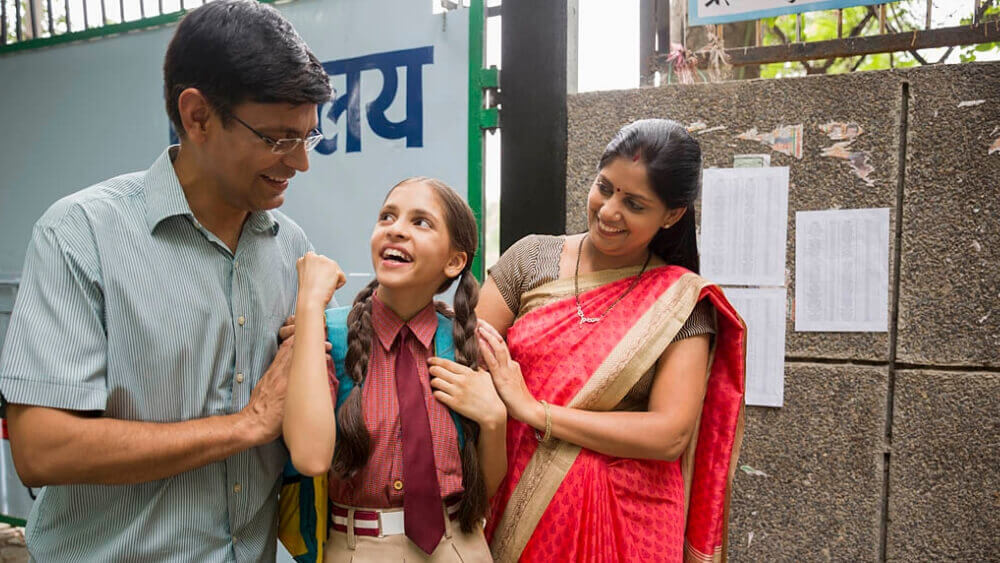How to console children after a bad paper?

So the exams are here. We’re hoping all our previous blogs have helped you. Planning a routine, manage stress during exams, dos and don’ts during exams were useful. Now, despite all the hard work, the exam went bad. The reason could be anything. The questions weren’t like past papers. The child had a panic attack and blacked out. The wobbly table wasn’t letting him concentrate. The reasons could be numerous.
What now? What can you say? You’re distraught. You feel like you’ve failed. But there’s another exam tomorrow. And you’ve got to help your child to prepare well for it. Let’s go through a few steps which will help you help your child feel better and prepare for the next paper.

1. Take the focus away from the paper
Nothing that has happened can be changed now. You can only move forward with positive and constructive support. Take the child’s attention away from what has happened. The feeling of failure makes a child feel bad about themselves. Remind them one bad paper doesn’t define them. Help them figure out how to do better next time. Assist them in plan new exam strategy.
2. See the good, see the ok and see the bad – Balance view
There could be 3 ways to look at a paper. The good, the bad and the ok part of a bad exam. The good part is about the lesson learnt. Maybe the child didn’t put enough hard work while learning. Maybe he wasn’t focussed enough. Now that he’s seen the outcome, he will change his approach.
It was a badly attempted paper. And it is ok. Everybody faces this some or the other time in their lives. Life isn’t always about success. Life is a mixture of good and bad experiences in life. Similarly, life is also about sometimes writing a bad paper.
The bad part is definitely going to be the results. Nobody likes failing. Children feel embarrassed about it. They’ll feel inferior in front of their friends. Tell the children failure is normal. Lots of people fail time and again before meeting a success.
3. Exams Are Not A Test Of Potential But Of Preparation And Recollection
One of the biggest fears every student has is of the results. Thankfully there are studies done to prove exams aren’t only about the results. Our memory is our greatest cognitive asset. Exams are about following road maps made while studying or while in the classroom. Results won’t entirely show the potential children have. It will only show their capability of recalling stuff while under pressure of the examination hall.
4. Analyze to improve
It is important children understand what went wrong during the exam. Did they blackout during writing the paper? Did performance pressure lead them into messing up? Did they not sleep last night and hence couldn’t concentrate? Or were they just underprepared?
The reason could range from anything to anywhere but it’s time to look ahead. Analyze the situation and find out exactly what went wrong. Then, together with work upon finding a solution. This way the child can be prepared better for the next exam and perform better.
5. Shift the focus on the next task/milestone
A parent’s reassuring words make children feel secure. You can tell them ‘ You’ll get past this’. That this isn’t a failure for life. Let the child vent his feelings. But once that is done there should be no looking back. They’ve just hit a bump and that their journey is long. They have major milestones to cross and for that, it’s imperative they focus ahead.
Share with them success stories. Tell them to set a time limit on their reaction. They can’t be brooding over a bad paper over days. It will only dishearten them. They might end up not looking at the big picture of success ahead.
6. Make them laugh
After a bad exam, children might feel guilty. They will want to start studying immediately. Instead, suggest you’ll take a walk. Or maybe turn on the music and dance it out. Or whatever it is that generally makes them feel good. A magical trait that every parent carries is that they can make their children laugh.
Once they’ve relaxed help them plan new strategies. Your support will help them study with renewed enthusiasm.

7. Cook their favourite food
There’s a clear relationship between food and state of mind. Combining food and positive talk will make the child feel better. You could avoid serving them foods loaded with sugar or energy boosters. It will only provide them with temporary energy which will fade off soon.
While certain foods have proven to elevate mood, a favourite meal makes everyone happy. A proven framework for a good mood is most-liked food. A chilled out and happy dining table conversation will take their mind off things.
8. Ask them to sleep, it’s over
There’s an old saying. Taking a problem to bed means waking up to a solution. With an overactive mind, children might find it difficult to sleep. But it’s imperative they sleep. Only then will they be able to concentrate better for the next round of studies.
Clearing their heads before starting studying for the next exam will help them. Sitting and ruminating over the thought of the exam will only make them feel worse. They could practise some meditation and breathing exercises. It will help them sleep better.
It is inevitable that students at some point or other will write a paper that will make them unhappy. The feelings that result are often depressing. Children should be told that this isn’t a failure. It’s just a lack of preparation. Parents and teachers can provide encouragement to them. Remind them they are only humans and they will make mistakes.
The above strategies can help you become their friend in need. While they need someone shoulders to cry upon, only they can pick themselves up. A tiny voice inside them should be able to remind them to never give up. Give them the tools that will help them make their inner voice strong.




